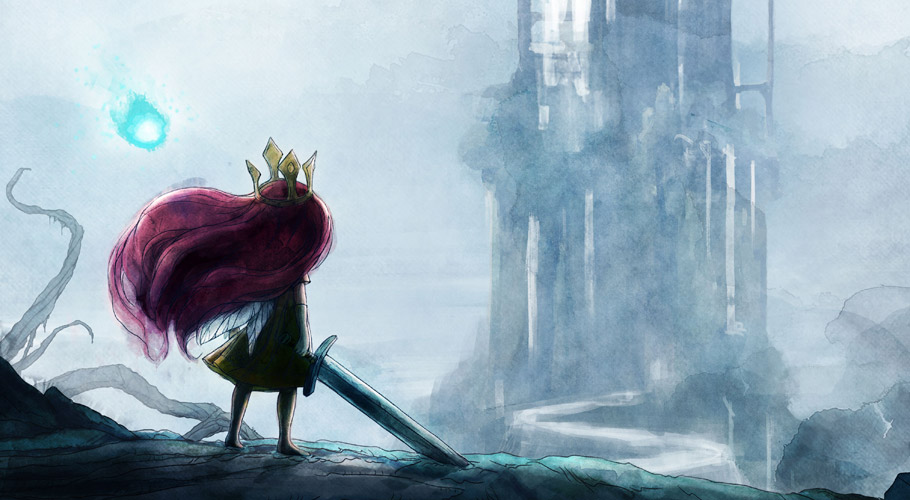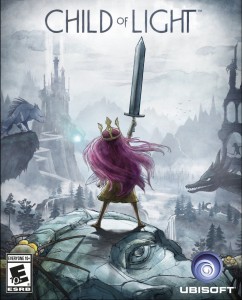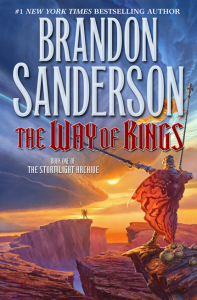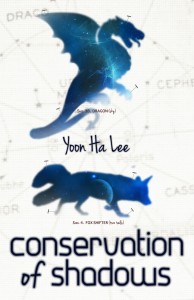Publisher: Crown -
Pages: 384 -
Buy: Book/eBook
I have a confession to make.
I read Andy Weir’s The Martian because of the cover. It’s shiny and dramatic, features an astronaut, and, well… it’s really shiny.
Earlier this year, I read An Astronaut’s Guide to Life on Earth, the autobiography of Chris Hadfield, a Canadian astronaut and former commander of the International Space Station, and Packing for Mars by Mary Roach, a non-fiction examination of what it takes to survive in space. So, after two non-fiction books, The Martian seemed like the perfect cap-off to my mini-tour of our solar system.
The difference between the three books is obvious from the get-go, most notably the backgrounds and first-hand experiences of the three authors. Hadfield’s book draws on his own personal knowledge of being an astronaut, including a harrowing tale of a time when he was literally blinded while doing a spacewalk. Roach’s book is a well-researched examination of the amusing and relatable aspects of human life in space. Weir, on the other hand, is an admitted hobbyist, and his novel combines Roach’s obsessive level of research with the a mile-a-minute plotting of Michael Crichton’s best science thrillers.
“I’m the sort of geek who will stay up all night to watch the news and see a Mars probe land,” Weir told Shawn Speakman, in an interview with Suvudu. “So I started out with a pretty heavy hobbyist knowledge of the material. Then, while writing the book I did tons of research. I wanted the science to be as accurate as I could possibly make it.” Read More »
Child of Light
Publisher: Ubisoft – Genre: RPG – System: Multi-platform
Buy: PC Download
tl;dr (spoiler free)
Child of Light, a side-scrolling JPRG developed by Ubisoft, features gorgeous 2D visuals (complete with great use of parallax scrolling of multiple layers), a beautiful and very non-traditional musical score, and fun strategic combat heavily inspired by the Grandia series. I didn’t like the story or the writing, but I enjoyed the game otherwise.
Full Review
Child of Light uses a modified Grandia combat system. For those unfamiliar with the system (and who haven’t played our own Penny Arcade RPGs which use a similar system), the core is that by hitting enemies right before they make their next move, you interrupt them which knocks them back on the time bar, essentially stunning them briefly. Child of Light makes a few changes to the basic Grandia system: your party consists of only two characters at a time (Grandia had a four person party); you can swap characters in and out mid-battle with ease; there is no positioning aspect (in Grandia, allies and enemies moved around the battlefield and different attacks had different ranges and areas of effect); all attacks can interrupt enemies (in Grandia, only specifically marked interrupt abilities did this); and you have a firefly friend, Igniculus, who can slow down enemies. Read More »
Publisher: Amulet Books -
Pages: 400 -
Buy: Book/eBook
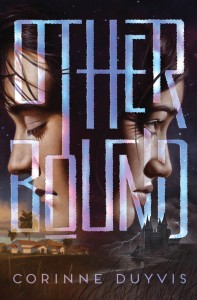
Every time Nolan Santiago closes his eyes in Arizona, he opens them in another world. There, he sees through the eyes of Amara, a mute servant tasked with protecting Cilla, a renegade princess threatened by a terrible curse. Though Amara doesn’t know it, Nolan has been bound to her his whole life, a silent passenger who nonetheless sees her thoughts and feels her pain as though they were his own. Nolan’s family think he has epilepsy, seizures and hallucinations, but no matter how many pills he takes, Amara remains real. Until, suddenly, a new medication gives Nolan the power to take over Amara’s body. For the first time, he can communicate with the Dunelands – and with Amara. But Amara has enough problems without learning about Nolan: her life is a misery of torture and servitude, she doesn’t know how to feel about Cilla, and the assassins chasing them are closing in. How can Nolan help with that? And why does Amara’s master, Jorn, seem suddenly to be in league with Cilla’s enemies?
This is going to be a review in three parts: a spoiler-free overview, some spoilery analysis, and a spoiler-free conclusion – because, as you may have guessed, Otherbound is a tricky book to discuss without giving away the ending. Or so I found it to be, though others may not – it’s very much a Your Mileage May Vary issue.
But I’m getting ahead of myself. Let’s start with the basics, shall we? Read More »
Publisher: Tor Books -
Pages: 1008 -
Buy: Book/eBook
Just one look at the cover of Brandon Sanderson’s The Way of Kings tells you everything you need to know about it. If you’re a fantasy virgin, a passerby in the grocery store, you can tell that it’s about knights and vivid fantastical set pieces. If you’re a long entrenched fantasy reader, you can see that, for all of publisher Tor Books’ will to make it so, the first volume of Brandon Sanderon’s The Stormlight Archives is the “next big fantasy, ” the heir apparent to Robert Jordan’s legendary and flawed opus, the Wheel of Time.
The Way of Kings is big. Thunderously huge. Sanderson might be best known for his work completing the late Robert Jordan’s series, but before that he was known to fantasy fans as one of the more exciting upcoming epic fantasists. His most popular work up to that point was the Mistborn trilogy, a self-contained series that, while applaudable for Sanderson’s eagerness to develop fascinating magic systems, suffered from poor pacing and bloat in both the second and third volumes. The longest of those volumes was two-thirds the length of The Way of Kings, the shortest about half.
Most writers are expected to write an epic fantasy in less than 200,000 words, The Way of Kings flirts with 400,000.
Since then, Sanderson’s star has risen to heights reached by few other working fantasy authors, and as a result the editorial department at Tor has slackened their reins, hoping to nurture the novelist as he attempts to fill the enormous hole left by Jordan’s passing. Even in the early pages The Way of Kings, while Sanderson is busy introducing readers to fallen gods, it’s easy to recognize his excitement at being given the reins to write an epic fantasy in the vein of Jordan, et al. Most writers are expected to write an epic fantasy in less than 200,000 words, yet The Way of Kings flirts with 400,000. Though this immense privilege and freedom for Sanderson’s ambitions hurts the novel, it also allows for a refreshing boldness and scope that the genre has been missing since the completion of the Wheel of Time and Steven Erikson’s Malazan Book of the Fallen. Read More »
Up until recently, short stories, as a medium, were largely off my radar. Though I read them avidly and voraciously as a child, at some point during my mid to late teens, I just sort of… stopped. It wasn’t so much a conscious decision as a consequence of the fact that, for whatever reason – their length, presumably – short stories are frequently marketed to kids, but less so to teenagers (or at least, that used to be the case), and once they were no longer being thrust upon me, I didn’t seek them out. I kept writing them, of course, but not very well or often, because it’s extremely hard to develop any proficiency at an art form you aren’t actively exposed to. But ever since I bought a subscription to Clarkesworld for my Kindle and remembered, somewhat belatedly, how amazing good short stories are, I’ve been ravenous for them.
Conservation of Shadows is, to put it bluntly, breathtaking.
Enter Conservation of Shadows by Yoon Ha Lee – a collection I heard about via Aliette de Bodard, who wrote the introduction – which has well and truly reminded me that, if you’re not reading short stories, you’re missing out on something vital. With settings that range from the fantastic to the science fictional – and including plenty which blur the lines between them – Conservation of Shadows is, to put it bluntly, breathtaking. Lee writes with extraordinary power and beauty: her worldbuilding, which frequently draws its influences from Korean culture and history, is compulsively original and detailed, but without being overwhelming (except on the level of sheer professional envy). Thematically, her stories deal with empire, colonialism, warfare and its aftermath, and the many ways in which all these elements impact on people, history, language and culture. Read More »

